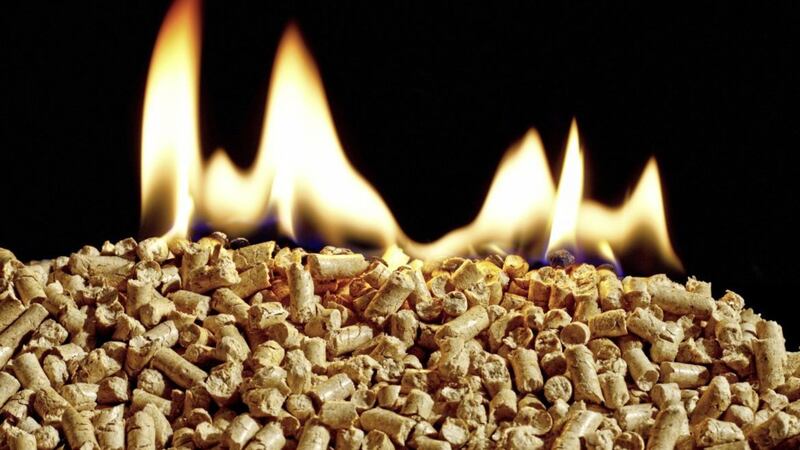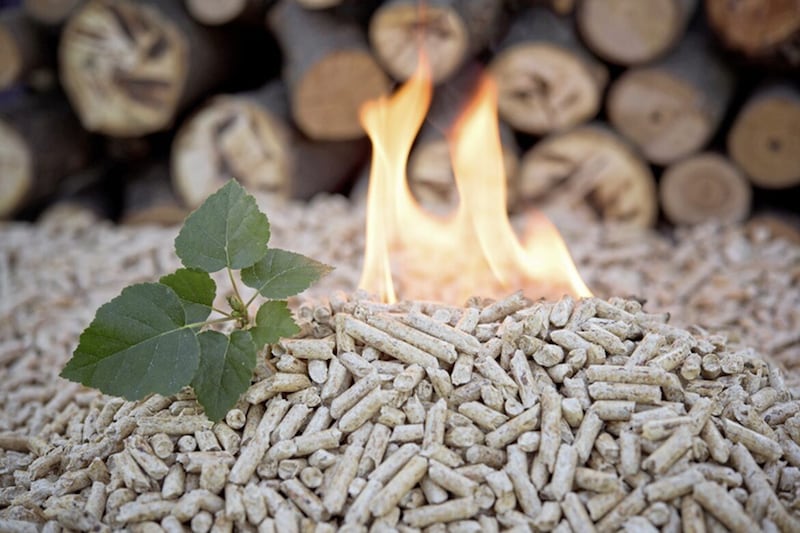THE north's farmers represent the overwhelming majority of claimants for Stormont's botched green energy scheme, documents obtained by The Irish News reveal.
A breakdown by sector of those receiving the lucrative subsidy shows that almost 55 per cent of Renewable Heat Incentive (RHI) claimants are involved in 'crop and animal production, hunting and related service activities.'
In total, 1906 businesses in Northern Ireland are expected to claim around £1.2 billion over the next 20 years.
The bulk of the funds were supposed to be paid by the UK Treasury, however, Stormont may now have to foot up to half the total bill.
Official documents obtained by this paper categorise claimants of the non-domestic RHI using the government's standard industrial classification – or SIC.
Agriculture-based enterprises represent by far the largest group, with 1030 farm businesses listed as claimants – more than 10 times the number from any other sector.
Earlier this week, The Irish News reported how civil servants warned former enterprise minister Jonathan Bell that a surge in demand for poultry shed heating systems was rapidly driving up the cost of the north's bespoke RHI scheme, which unlike a corresponding scheme in Britain had no cost controls in place.
Video: Arlene Foster speaking to the Irish News in October about RHI
In July last year – months before spending on the lucrative scheme was finally curbed – officials within the Department of Enterprise, Trade and Investment (Deti) sent Mr Bell an urgent memo highlighting the spiralling cost of the Renewable Heat Incentive (RHI).
"This increase has been driven by a move in the poultry sector away from LPG (liquid petroleum gas) heating systems to biomass heating systems in broiler houses," the memo said.
The breakdown of the RHI scheme by category shows the second largest group is the hotel/hospitality sector, where 92 businesses are availing of the generous subsidy scheme.
Forestry and logging, although a comparatively small sector in the north, has 80 RHI claimants, while 71 firms involved in the manufacture of basic wood products and straw are claiming the subsidy.
Other notable groups of claimants are retailers, sports and recreation facilities and care homes.
The list of non-domestic RHI claimants by standard industrial classification – or SIC
:: Crop and animal production, hunting and related service activities 1030
:: Accommodation 92
:: Forestry and logging 80
:: Manufacture of wood, wood products and cork, except furniture; manufacture of articles of straw and plaiting materials 71
:: Office administrative, office support and other business support activities 64
:: Retail trade, except of motor vehicles and motorcycles 43
:: Sports activities and amusement and recreation activities 34
:: Residential care activities 32
:: Manufacture of fabricated metal products, except machinery and equipment 30
:: Wholesale and retail trade and repair of motor vehicles and motorcycles 38
:: Wholesale trade, except of motor vehicles and motorcycles 31
:: Repair and installation of machinery and equipment 29
:: Other manufacturing 22
:: Warehousing and support activities for transportation 21
:: Activities of membership organizations 19
:: Specialized construction activities 18
:: Construction of buildings 17
:: Manufacture of machinery and equipment 15
:: Manufacture of motor vehicles, trailers and semi-trailers 14
:: Other mining and quarrying 14
:: Manufacture of food products 13
:: Food and beverage service activities 12
:: Manufacture of electrical equipment 11
:: Education 11
:; Manufacture of textiles 9
:: Waste collection, treatment and disposal activities; materials recovery 8
:: Social work activities without accommodation 8
:: Libraries, archives, museums and other cultural activities 8
:: Manufacture of furniture 7
:: Civil engineering 7
:: Human health activities 6
:: Human health activities 6
:: Manufacture of wearing apparel 6
:: Undifferentiated goods- and services-producing activities of private households for own use 6
:: Motion picture, video and television programme production, sound recording and music publishing activities 6
:: Manufacture of other transport equipment 5
:: Activities of head offices; management consultancy activities 5
:: Manufacture of rubber and plastics products 5
:: Manufacture of other non-metallic mineral products 5
:: Other professional, scientific and technical activities 5
:: Land transport and transport via pipelines 5
:: Manufacture of beverages 4
:: Rental and leasing activities 4
:: Manufacture of basic metals 3
:: Veterinary activities 3
:: Other personal service activities 3
:: Creative, arts and entertainment activities 2
:: Fishing and aquaculture 2
:: Mining of coal and lignite 2
:: Manufacture of leather and related products 2
:: Printing and reproduction of recorded media 2
:: Water transport 2
:: Manufacture of chemicals and chemical products 2
:: Architectural and engineering activities; technical testing and analysis 2
:: Activities of households as employers of domestic personnel 1
:: Repair of computers and personal and household goods 1
:: Electricity, gas, steam and air conditioning supply 1
:: Employment activities 1
:: Services to buildings and landscape activities 1
:: Postal and courier activities 1
:: Computer programming, consultancy and related activities 1
:: Financial service activities, except insurance and pension funding 1
:: Activities auxiliary to financial service and insurance activities 1
:: Legal and accounting activities 1
:: Manufacture of computer, electronic and optical products 1
Total 1906








